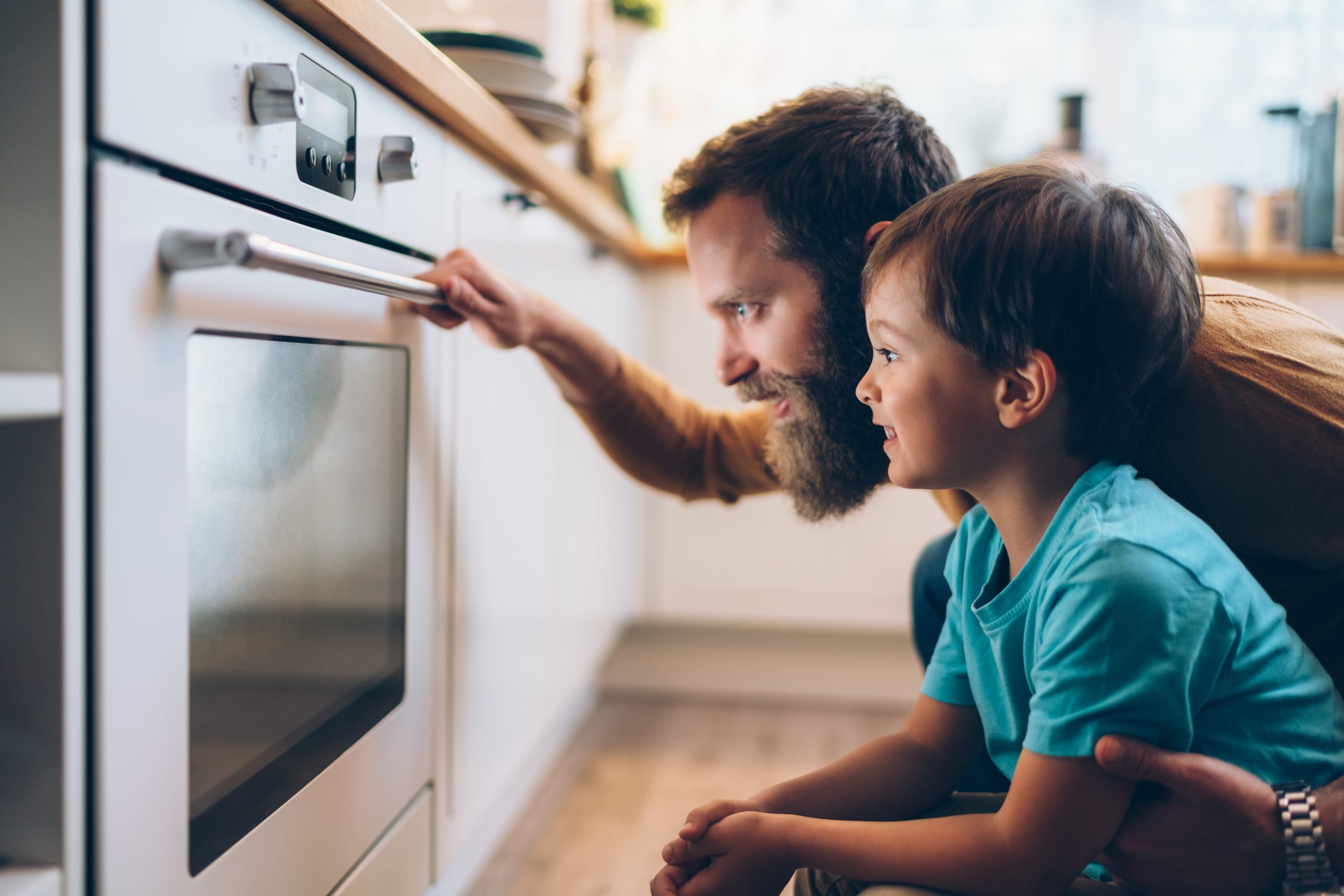
The Importance of Hearing Your Voice and Sharing Your Story
Comments? Video? Surveys? Voice memos? How do you want to tell your story?
Albertsons wants to know how you would like to share your story. Do you want to record a video? Leave your story as a comment below? Fill out an anonymous survey? Let us know.
Why share your story?
- Sharing our stories, experiences, and hardships is one of the most effective ways to connect with each other. Hearing your story could help someone else open up about their own life hardships or even help someone understand what it’s like to face food insecurity and hunger.
- Every story, situation, and experience is unique — but that doesn’t mean you’re in it alone. Sharing your triumphs, battles, and everything in between can encourage others to elevate their own voices.
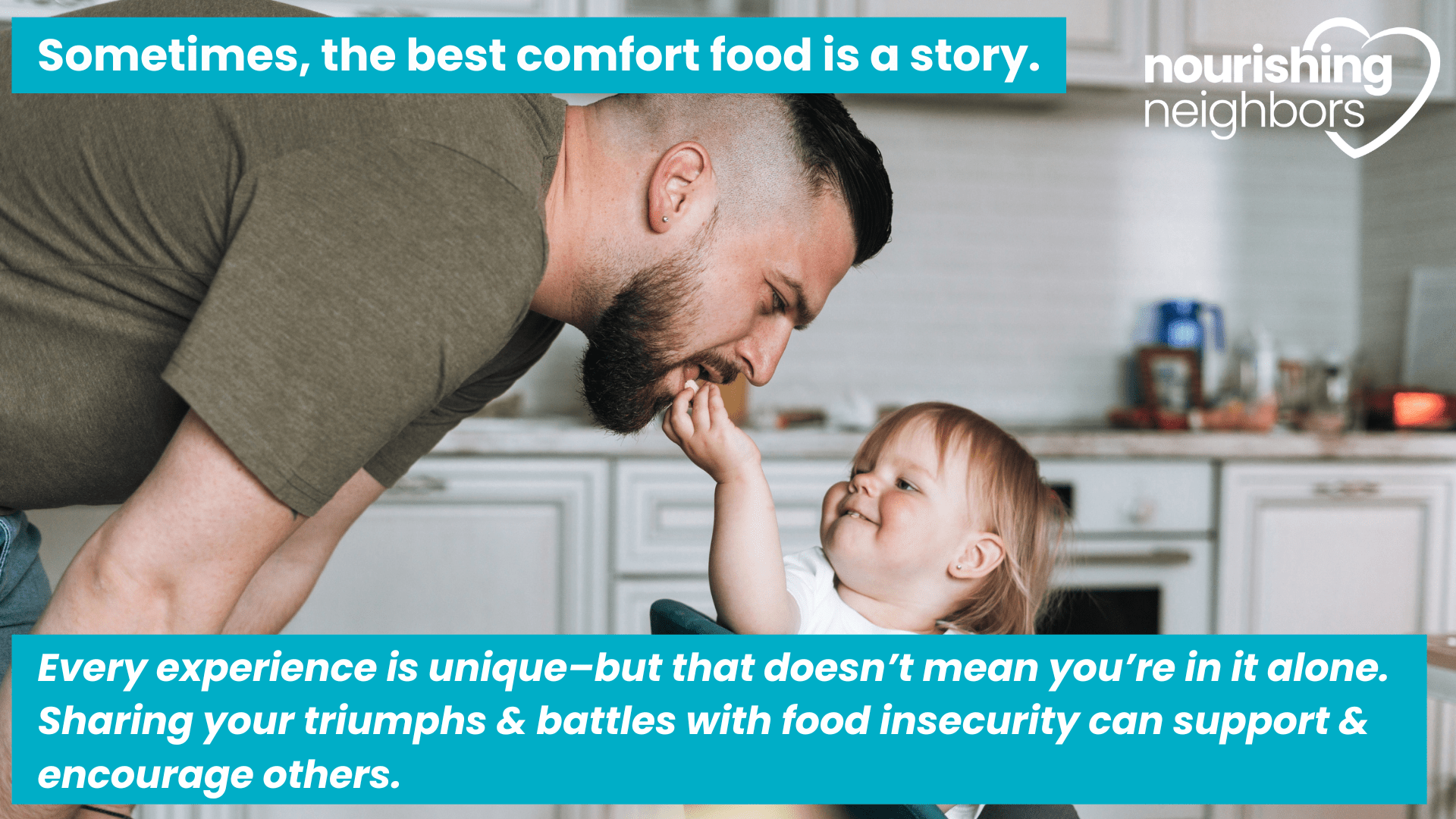
- By conveying your story, you’re helping to break the stigma around hunger and the cycle of shame and guilt that comes with financial struggles. Creating dialogue and a narrative around food insecurity helps communities and advocates, and transparency helps everyone.
- Storytelling has even made its way into the political realm. Rep. Jim McGovern (D-MA) is calling for Americans to not accept the pre-pandemic status quo that left millions food insecure. He is asking to hear the public’s thoughts on how we can solve the hunger crisis and share their own story of hunger, illustrating how influential stories can be in politics and public health. McGovern stated:
“We have the food, the ability, and the means to end hunger in America — what we lack is the political will and moral courage to act. We must change that.”
- Albertsons wants to amplify your voice. Will you share your story?
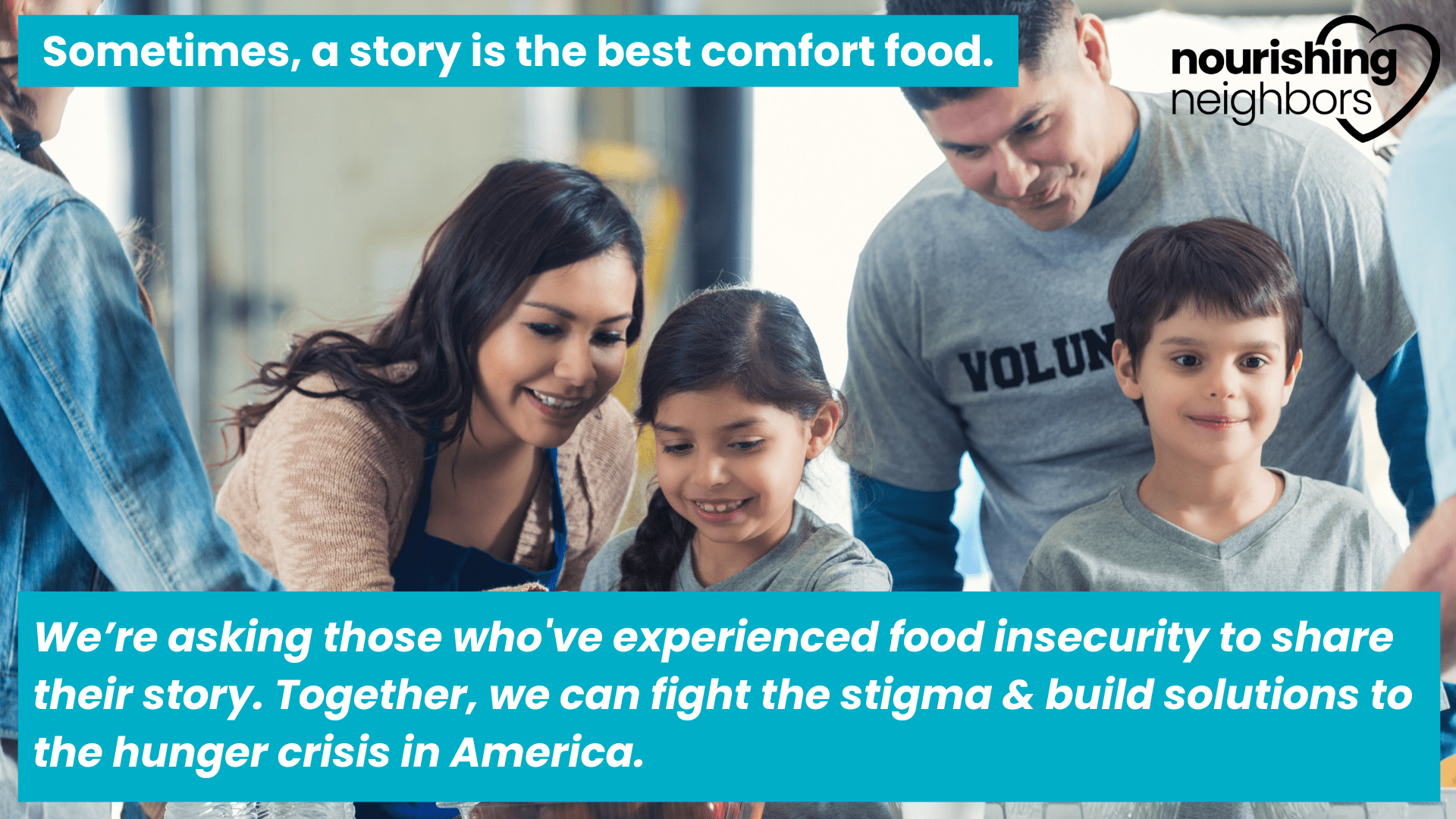
Who experiences food insecurity?
- The short answer: Anyone can experience food insecurity. Millions of Americans cannot access sufficient, quality food every year due to lack of income, employment status, disabilities, geographic location, and so on.
- However, some communities are more vulnerable than others. Poverty is the most significant factor in hunger — living in low-income households is the most common cause of food insecurity.
- Native Americans suffer from the highest rates of food insecurity in the country. About one in four Native Americans experience hunger, compared to 1 in 8 Americans nationwide, making Native households 400% more likely to report food and water insecurity.
- Black Americans also experience one of the highest rates of food insecurity in the country. In 2020, an estimated 24% of the Black community experienced food insecurity, compared to 8% of white Americans in the same year.
- Women also face food insecurity at disproportionate rates worldwide, making up 60% of people stuck in the hunger cycle. Single-mother households have a nearly 25% rate of food insecurity in the U.S.
- Not only does food insecurity risk increase amongst people with disabilities, but it can also contribute to worsening health conditions and higher probabilities of chronic disease. In households with an adult receiving federal or state disability benefits, 22% experience food insecurity.
- Over 17% of the Latinx population is food insecure, which further illustrates the correlation between poverty and hunger in the U.S — Latinx communities account for almost 19% of the total population, yet makeup 28% of those living in poverty.
Whoever you are, and whatever you’ve experienced, you’re not alone. We want to hear your story, your thoughts on the stigma, and your solutions.
Albertsons wants to know how you would like to share your story. Do you want to record a video? Leave your story in a comment below? Fill out an anonymous survey? Let us know.
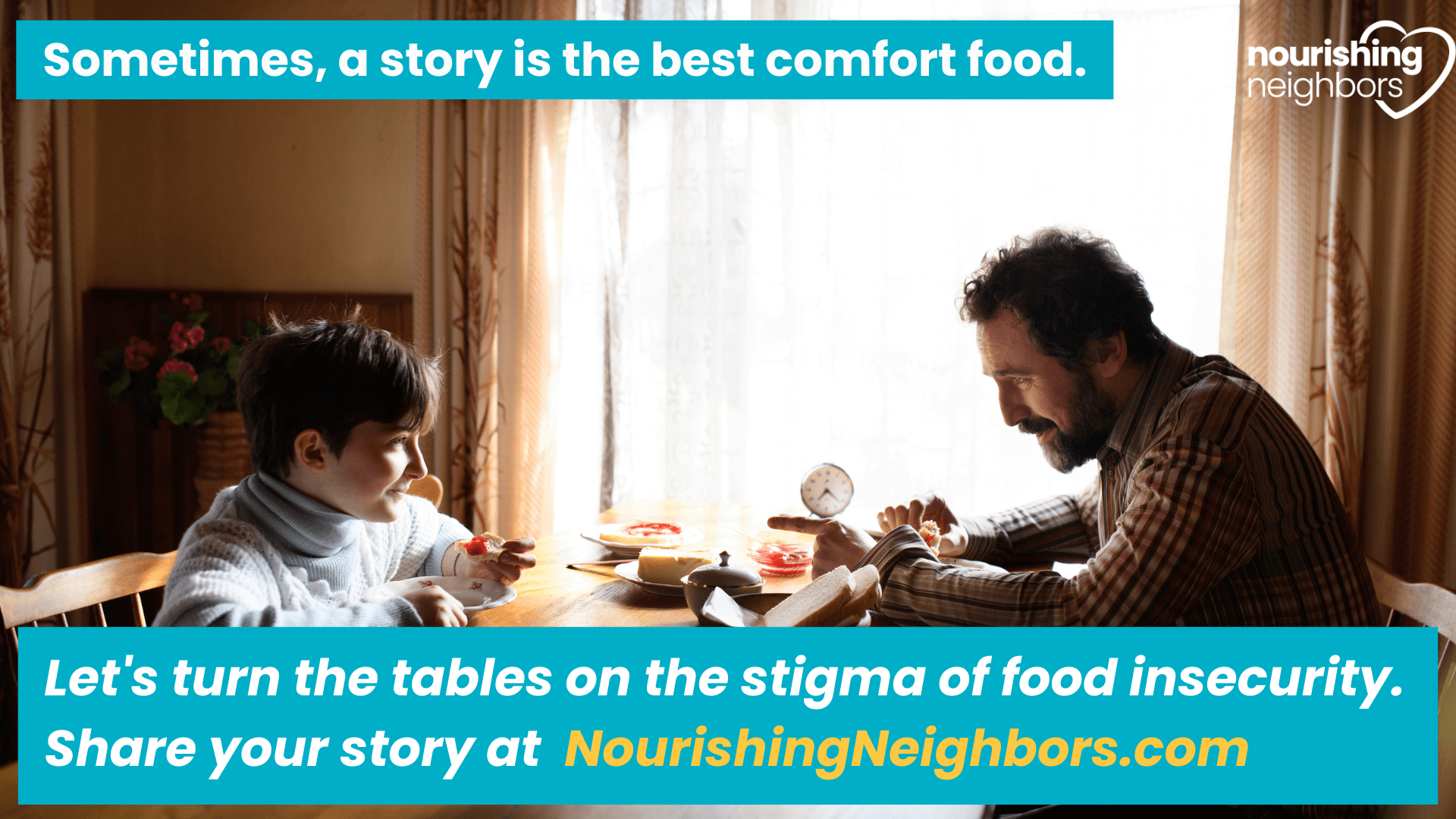
MOST POPULAR
-
 Strengthening Local Pantries, One School at a TimeOur Nourishing Neighbors team recently delivered donations to three Idaho school pantries—Capital High School in Boise, East read more... Share Your Story
Strengthening Local Pantries, One School at a TimeOur Nourishing Neighbors team recently delivered donations to three Idaho school pantries—Capital High School in Boise, East read more... Share Your Story -
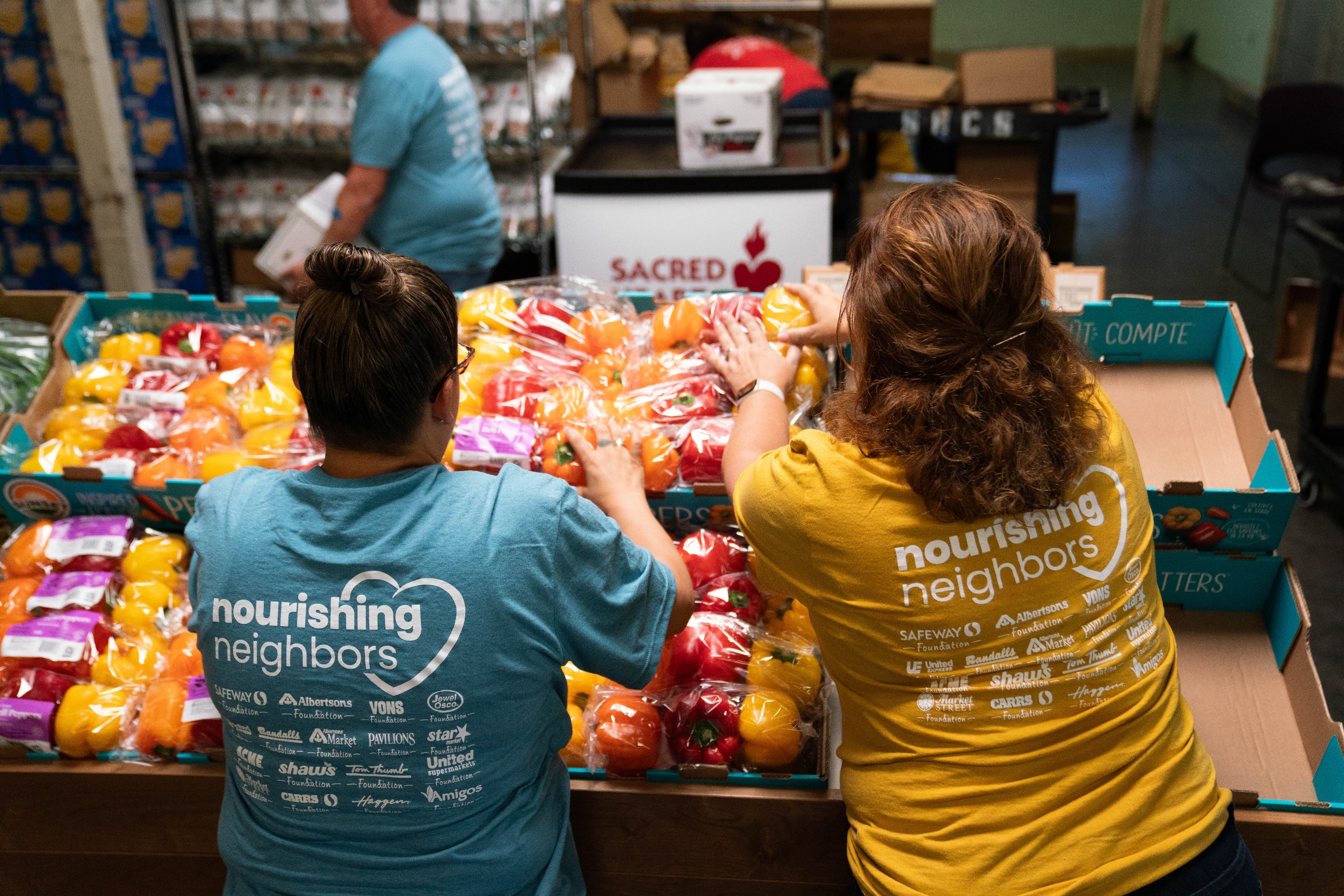 Reflecting on 2025: A Year of Impact, Innovation and Hope from Albertsons Companies Foundation and Nourishing NeighborsAs we step into a new year, we pause to celebrate the incredible progress we’ve made together in 2025 through the Albertsons read more...
Reflecting on 2025: A Year of Impact, Innovation and Hope from Albertsons Companies Foundation and Nourishing NeighborsAs we step into a new year, we pause to celebrate the incredible progress we’ve made together in 2025 through the Albertsons read more... -
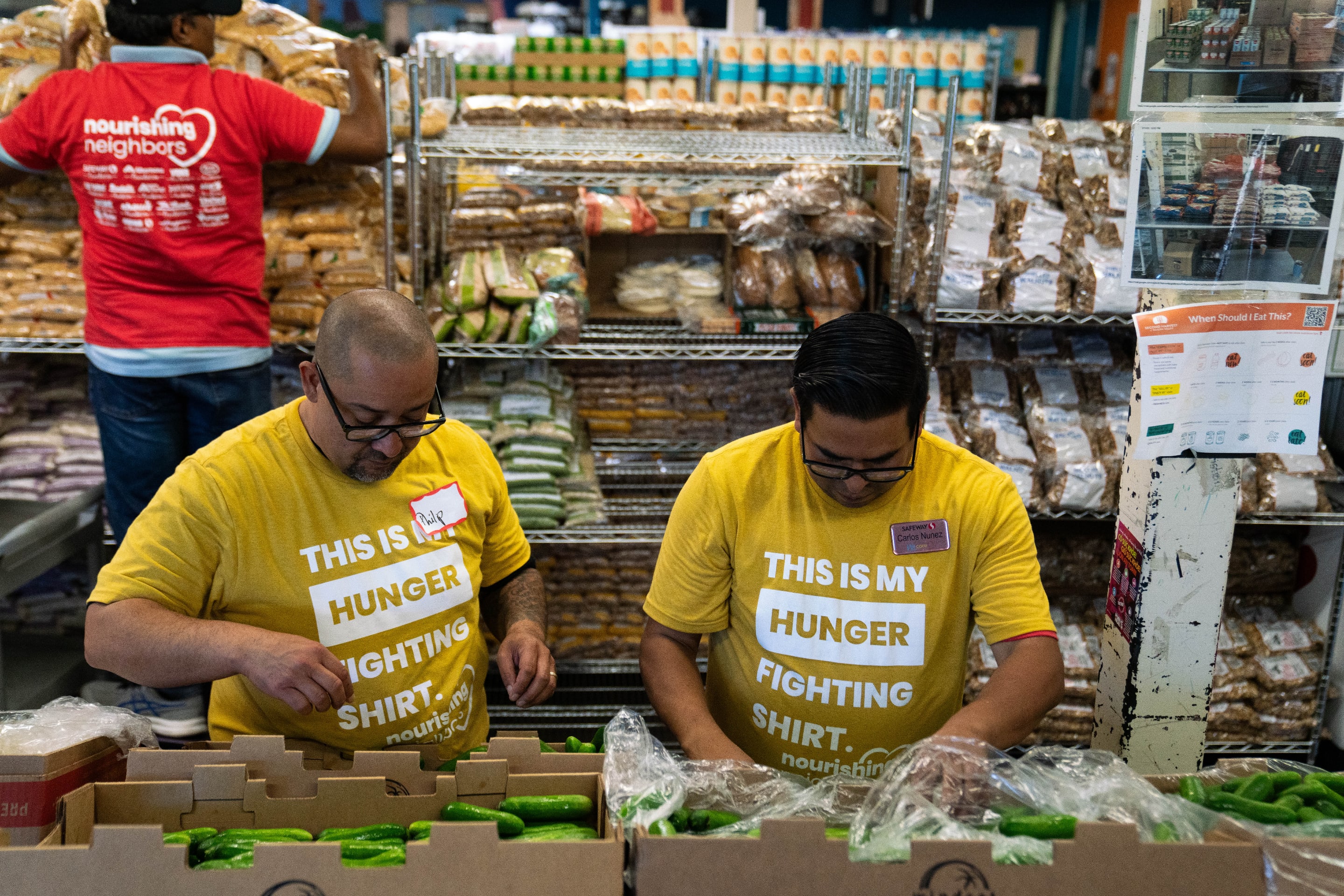 Nourishing Neighbors and Albertsons Companies Customers Raise Over $4.9 Million During Hunger Action MonthAlbertsons Companies, in partnership with the Albertsons Companies Foundation and its charitable program Nourishing Neighbors, read more... Local Stories of Impact
Nourishing Neighbors and Albertsons Companies Customers Raise Over $4.9 Million During Hunger Action MonthAlbertsons Companies, in partnership with the Albertsons Companies Foundation and its charitable program Nourishing Neighbors, read more... Local Stories of Impact -
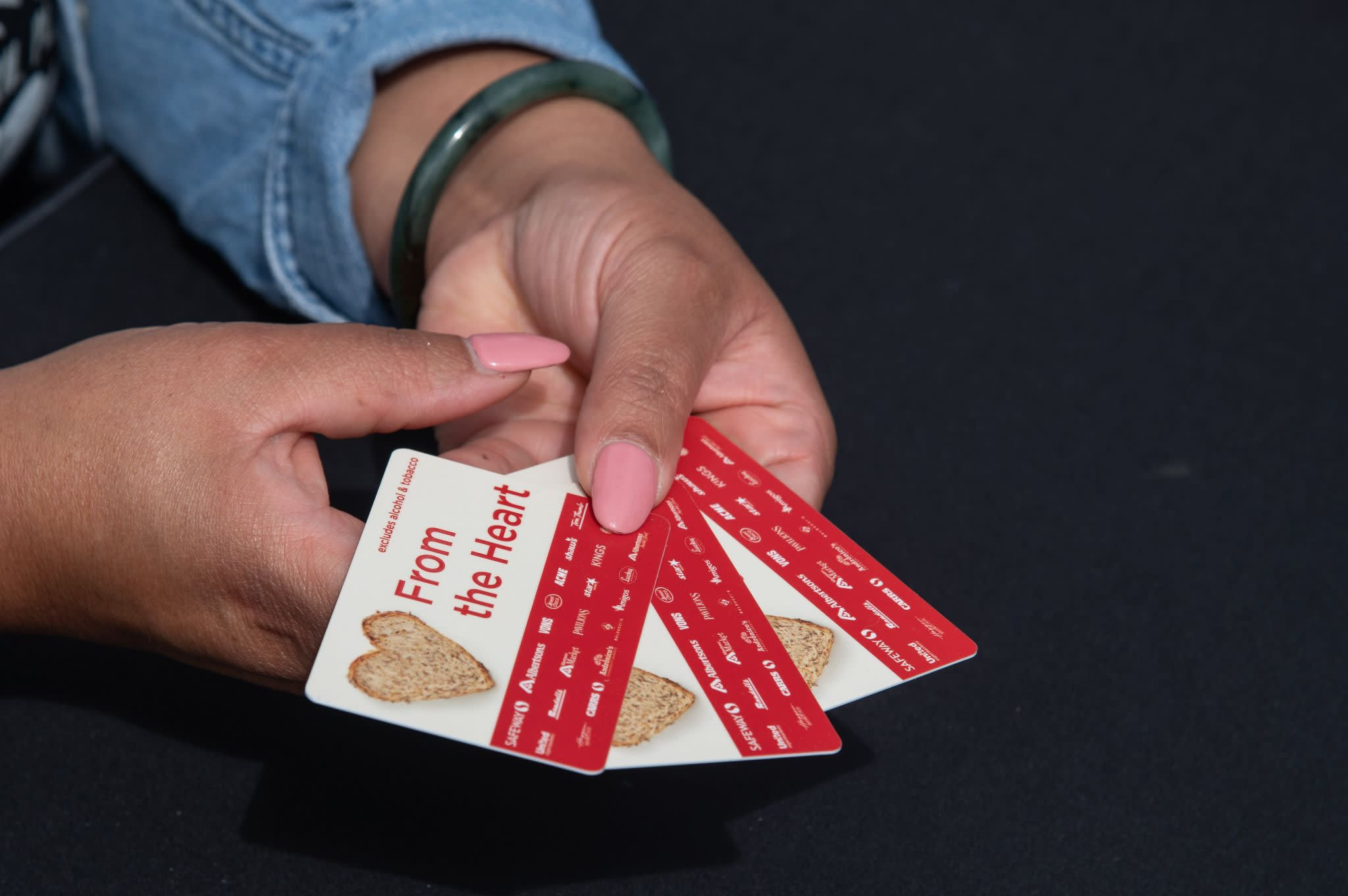 Albertsons Companies Accelerates $13 Million in Holiday Gift Cards to Community FoodbanksAlbertsons Companies, in partnership with the Albertsons Companies Foundation and its charitable program Nourishing Neighbors, read more... Local Stories of Impact
Albertsons Companies Accelerates $13 Million in Holiday Gift Cards to Community FoodbanksAlbertsons Companies, in partnership with the Albertsons Companies Foundation and its charitable program Nourishing Neighbors, read more... Local Stories of Impact
Hello, my dears. Unfortunately, I have little time, I need medical help to undergo a course of treatment - I have apraxia, all this is accompanied by dizziness, muscle weakness, loss of coordination, headaches and loss of consciousness with convulsions. I need to pay off loans and debts. Return the apartment, which was repossessed for overdue debt to the bank. Return the car. I need to get back on my feet to feed my family, we can no longer live. I want to cover all loans and debts to get back on my feet, but due to health problems, alas, I can not. 2200080238635425 is my card number. If necessary, I will send more information. I just ask you to help me. Best regards, Eduard.
I am been evicted from my mobile home. I was behind on my rent due to a tragic car accident. I am the owner of the mobile home but I rent the land. I had two different organization tried to pay my past due rent. The Office Manager ignored all communications. They were not trying to get the rent they were just trying to evict me. I payed all outstanding balance and late fees. They are still evicting me and staying with my mobile home that is worth 25,000 and will not delete the eviction of my credit even though I have paid all fees. Another single mom with a disabled child in the streets. New laws need to be made for both parties to win.
MINISTER CRYSTAL LASHELLE LAX
Founder of Jesus Christ Ministry
N Monument Ave
Pahrump Nevada
Phone:(702) 420-1356
Saving Souls for Christ Jesus
Hello
My name is Minister Crystal Lashelle Lax.
Owner and founder of Jesus Christ Ministry.
We are a faith based non profit homeless Street Ministry newly founded.
We're seeking to raise funds for Ministry van, winter
and regular clothing, blankets, socks
and shoes, food and other hygiene items.
and regular clothing, blankets, socks
and shoes, food and other hygiene items.
✝️Jesus Christ, Ministry Founder Minister Evangelist Crystal Lashelle Lax
Monument Ave
Pahrump Nevada 89048
(702) 420-1356
Minister Administration Assistant: Stacey
SALVATION IS FREE!
Do you know the Lord Jesus Christ as your Lord and personal savior?
Do you know why Jesus came to the earth?
Answer: To save your "Soul" from sin and the evil, wicked "Devil" from claiming your "Soul" after you die and leave this earth.
To save your soul from burning with Satan AKA, the devil, and his evil demons in the lake of fire.
Do you know why God sent Jesus?
Answer: John 3:16-For God, so love the world (including you) that he gave his (Only) begotten son (Lord Jesus Christ).
Whoever believes in him does not perish but has eternal life).
Roman 10:9-That if thou confess with thy mouth (by Faith) the Lord Jesus and shall believe in your heart that God raised him (Jesus) from the dead, Thou shall be SAVED
Roman 10:13-For whoever shall call upon the name of the Lord shall be Saved.
Steps to be Saved
1. Repent for God Kingdom is near.
2. Ask God to forgive for your sins.
3. Repeat this prayer;
Dear heavenly father, I come before you repenting of all my sins asking you to forgive me for all my evil ways, wrongdoings.
I call upon the name of Jesus Christ of Nazareth to come quickly into my life and be my lord and personal savior.
I confess with my mouth the Lord Jesus Christ of Nazareth and believe in my heart by faith You holy heavenly father raised Jesus up from the dead to save my soul from Satan and the lakes of fire. With the confession of my mouth and belief in my heart by Faith, I am saved.
What to do after you are saved?
1. Find a Bible teaching church
2. Study the Word of God for yourself. Start with the New Testament to learn more about Jesus' Ministry and teachings.
3. Be water baptism in the name of Jesus Christ of Nazareth. John 3:13-Jesus Baptism.
4. Ask God for his free gift of the Holy Ghost.
Acts 1:4-But wait for the gift my father promised,
(5) For John Baptized with water, but in a few days, you will be baptized with the "Holy Spirit."
Acts 1:8-
But you will receive power when the Holy Spirit comes on you.
Acts 2:1- Holy Spirits shows up, and people were filled with the Holy Ghost, and they spoke in other tongues as the spirit gave them utterance.
Acts 2:5
I run a 501c3 non profit in Mesa, AZ where I house and feed animals while their person goes to drug or alochol treatment.
Hello !
My name is Kelsee Cheslock and I wanted to reach out to tell my story and to see if there may be any assistance someone could help me apply for, receive or maybe just point me in the right direction. I was recently in a very traumatic incident while working as a veterinary technician at a local animal clinic in my community when I was attacked by a dog that was under sedation for a procedure. Unfortunately, there was not enough time given after administering the sedative for her to be completely ready for the procedure. However, I was not the technician that administered her with the sedative so I was unaware of the amount of time she was under for when I was told to pick her up and bring her to the operating table. When I put my arms around the front of her and my co-worker grabbed the back of her she suddenly came to and latched on to the right side of my face. I was rushed to the emergency room where they gave me a tenacious shot and sent home with antibiotics. A few days later the infection set in so badly I had to return to the emergency room where they immediately admitted me for almost a week. I was advised not to return to work until my settlement case was over with. Because I followed their instructions and did what they advised me to do, which was to not work, I literally lost everything very quickly. First, it was me not being able to afford my car insurance payment therefore, that resulted in my drivers license getting suspended. Then, my vehicle got repossessed and now my landlord has filed a judgment for eviction and this morning I woke up to a 24-hr notice taped to my front door.
I am also a single mother of a 5 & 7 year old. About 7-8 months ago I was on the verge of becoming homeless so I had to make an extremely difficult decision no parent would ever dream having to make and that was to either have my children live in my vehicle with me and experience having to live in such horrible conditions or bring them to my mothers house until I was able to get on my feet and have a stable home for them. So, I decided to bring them to my mothers. Because of me having to make that horrible decision my entire family looks at me like the worst mother they’ve ever known!
Well, being the hard working, dedicated mother I am, I worked and worked and worked and saved and saved and saved and was finally able to afford the deposit to move into our new home plus a few months of rent that I also paid ahead. I had my dream job working as a veterinary technician, I had a brand new 2021 Chevy Spark and a home that was perfect for me and my little ones!
I was only just weeks away from my children finally coming home to me, as I worked so extremely hard for, I had both of their rooms set up for them (my sons room was painted Spider-Man and my daughters room was all unicorns and fuzzy carpets) for when they finally got to be home! They would’ve loved it!
So, because of this accident happening to me at work, my children didn’t have the chance to see what I did for them.
I am so devastated and saddened that this happened to me. I can’t seem to understand why something always happens that prevents my children coming home to me. All I’ve ever wanted more than anything in this world is to have my babies with me and give them a beautiful life and be able to enjoy it with them.
I wanted to contact you directly to tell you my story and also see if Publix offers and grants to low-income mothers that are struggling or may know of any resources that might be able to help me and my children right now! Anything at all would be appreciated and such a blessing to me and my children more than anyone would understand! Like I stated in the beginning, I have contacted all local resources in my community and county and I either do not qualify because I currently do not have my children living with me at this exact moment or they are out of funds. I’m almost to the point where I have no more hope left in me because I just can’t seem to understand how someone can try as hard as I do to provide for her children, and just to be able to raise them and enjoy being a mother to them yet, no matter what I do something always happens and knocks me back even further than where I originally started! I do have hope and faith that everything truly does happen for a reason whether we see it now or maybe even a few years from now, but sometimes all someone needs is a little bit of help! My family is not here for me for any support or even just some uplifting words of encouragement that sometimes I desperately need but that’s okay because I know one day I will get to the place where I belong with my children and be able to be a family again. I do apologize for reaching out unexpectedly however, anything at all would be extremely helpful and just truly a blessing that I need more than anyone would know right now!
I want to thank you to whom ever this email may reach a for taking the time to read my story!! Even just a response would mean the world to me even if there is no assistance or help that can be offered. I really hope to hear back soon! Again, thank you and god bless!
Thank you,
Kelsee
Thanks to the generosity of Albertson's of Carpinteria, many families in our community have been able to stretch their limited budget's a bit further.
With the help from our food pantry which is stocked by the donations from Albertson's, we have been able to create new connections with elders in our community and the many families who have come to depend on us. They share stories, triumphs and more with us.
Nourishing Neighbors has helped create new friends and connections and we are thankful.